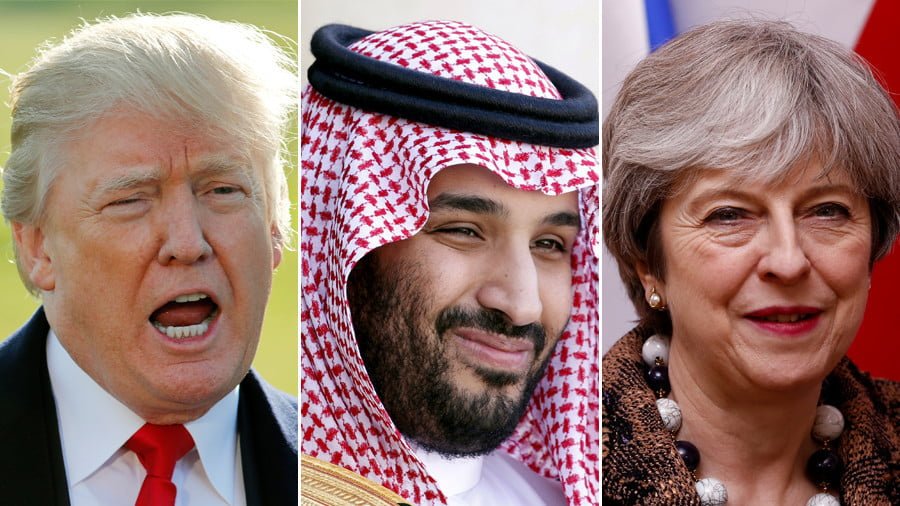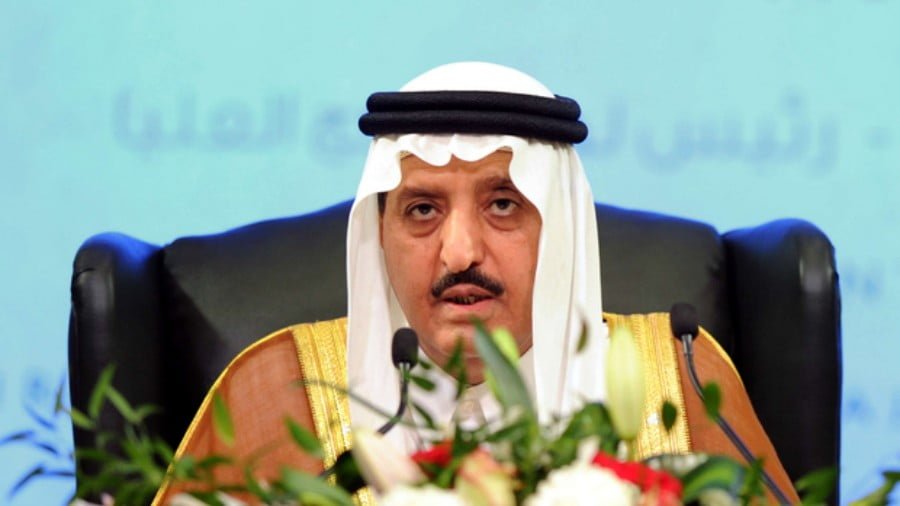Saudi Arabia’s Social Stability to Fall Apart
Geopolitical Futures’ George Friedman has warned that Saudi Arabia’s inability to keep oil prices up to $90 a barrel will frustrate the kingdom’s effort to balance its books, meaning it is only a matter of time before “Riyadh’s unique social stability comes apart.”
A country of over 31 million, Saudi Arabia is ruled by six royal family branches, with about 15,000 members. But the majority of the power and wealth is possessed by a group of 2,000, who buy public support through massive social welfare spending.
Saudi Arabia was a prime beneficiary from the 1998 to 2013 commodity “supercycle” that saw that saw the price of oil rise by 1,062 percent and the nation accumulate $737 billion in foreign exchange reserves by late 2014. That explains why only 5.5 million Saudis work and 3 million work directly for the national government.
As Breitbart News has reported, Saudi Arabia’s oil and gas sector contributes 45 percent of GDP, funds 80 of the government’s budget, and accounts for 90 percent of exports. Saudi Arabia imports 70 percent of its food and has to import all of its military hardware, cars, refrigerators, airplanes, ships, and most consumer and industrial goods.
To balance its books, Saudi Arabia needs the price of oil to be $90, versus the current $54 per barrel. Despite the kingdom being “engaged in a number of measures towards adjusting political economy to accommodate low oil prices,” Riyadh has blown through 27 percent of its foreign exchange reserves,” which hit $535.9 billion as of October – a $10 billion drop from the prior month.
Saudi Arabia posted a $98 billion budget deficit in 2015, and its plan will fail to keep the deficit below $87 billion this year. The kingdom engaged in an austerity drive, issuing government debt, and privatizing public sector services, taxation and other activities.
Saudi Arabia’s 2014 budget spending was $294.3 billion, with a $14.4 billion deficit. The 2015 Saudi budget was cut down to $229.3 billion in spending, with an expected $38.6 billion deficit. But with the oil price plunging by 60 percent, the kingdom’s foreign exchange reserves could be wiped out in four years.
Saudi Arabia has tried to “transform its spending by engaging in a major austerity drive,” Friedman notes, for the first time in the nation’s history. The nation has delayed $27 billion in payments to vendors and cut $17 billion in benefits to public sector workers. About $266 billion in development projects were cancelled, amounting to 70 percent capital expenditures.
The kingdom is expected to institute up to a 20 percent value-added tax (VAT) by January 2018 and is expected to levy an income tax on the foreign expatriate community of about 10.1 million workers who send home about $36 billion per year in remittances.
The Saudi monarchy has aligned itself with the Salafist ultra-conservative religious establishment as the “Custodian of the Two Holy Mosques” — the Prophet Muhammad’s mosque and the Kaaba that Muslims, since 624 CE, have been required to pray towards 5 times a day and visit at least once in their lifetime.
The Saudi royal family “has faced challenges to its legitimacy as an Islamic state since the monarchy’s earliest days” for “betraying the faith to remain in power,” Friedman observes. Al-Qaida and the so-called Islamic State are only the most recent adversaries.
The Saudi monarchy has been sharing the oil wealth with regional tribes to create the loyalty that allowed the Saudi monarchy to sustain power to “control the masses as well as the large community of religious scholars. This has served as a bulwark against citizens who may have wanted to rebel against the regime,” Friedman adds.
The kingdom had “operated on the belief that demand for its oil will always remain high, but this approach is no longer viable given the rise of other producers, particularly in North America with the onset of shale oil,” Friedman warns.
With Saudis losing the privileged lifestyle the government funded for decades, Friedman perceives that the impending transition of power from Saudi Arabia founder’s sons to his grandsons “has the potential to lead to a combination of street agitation and militancy.”







